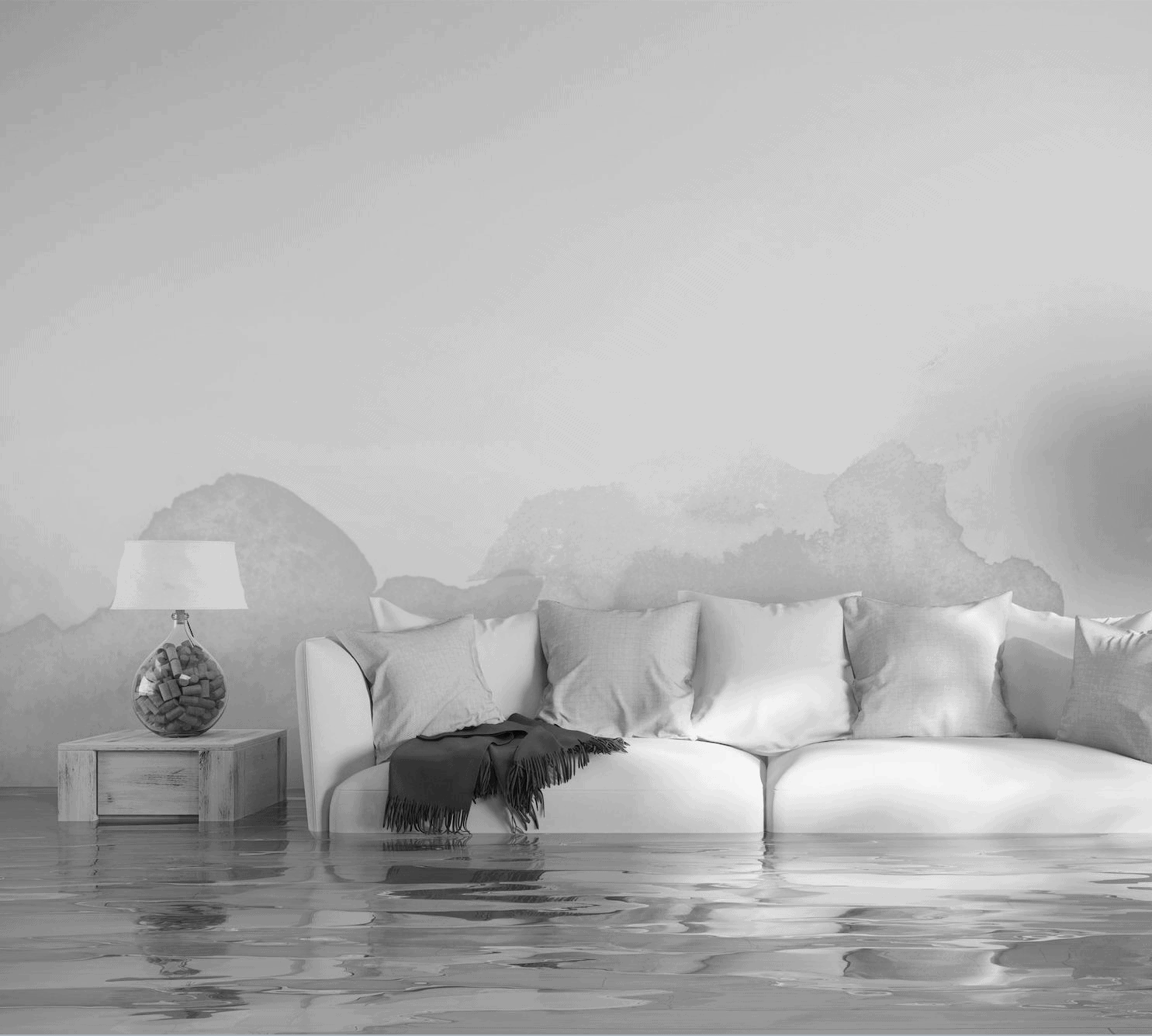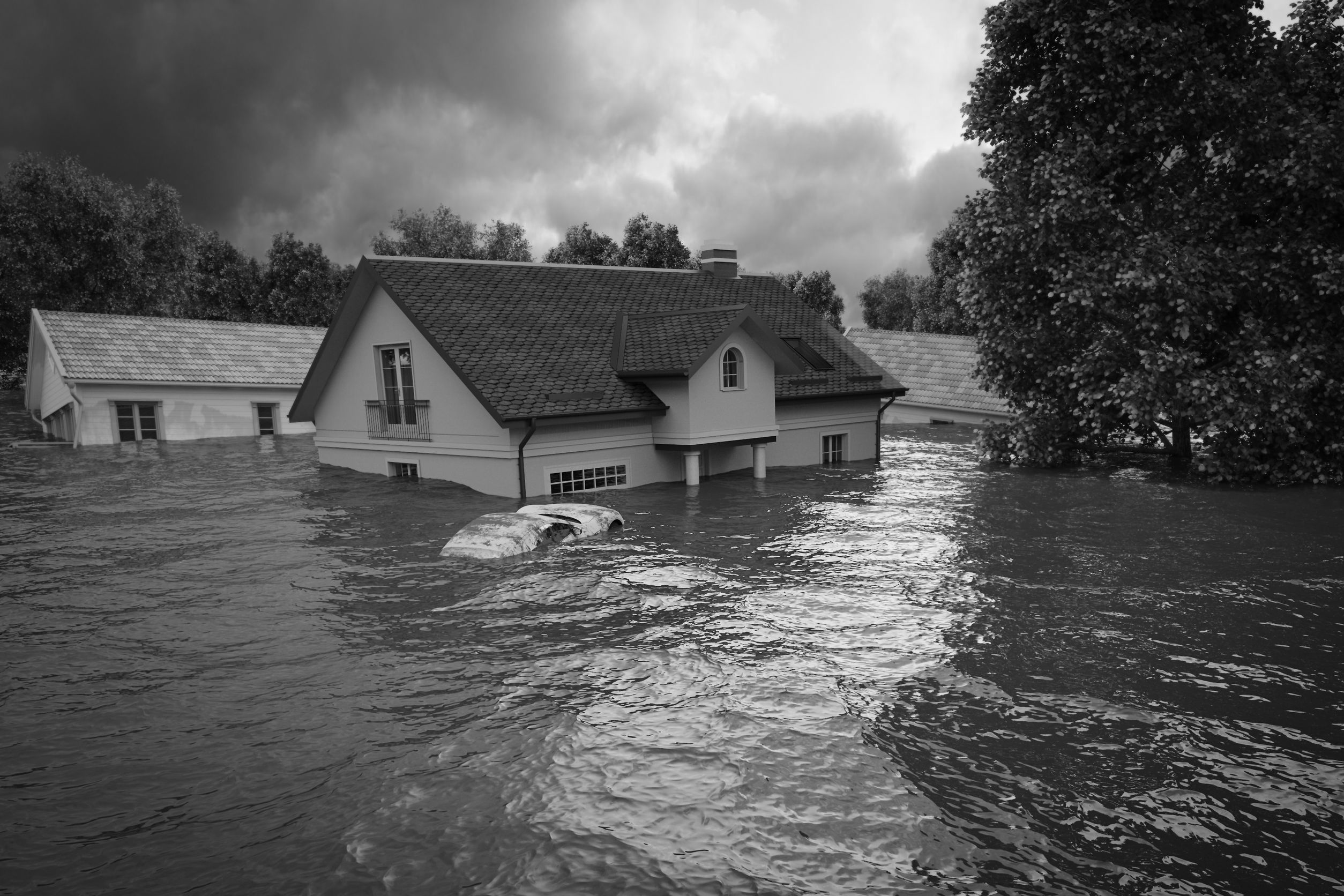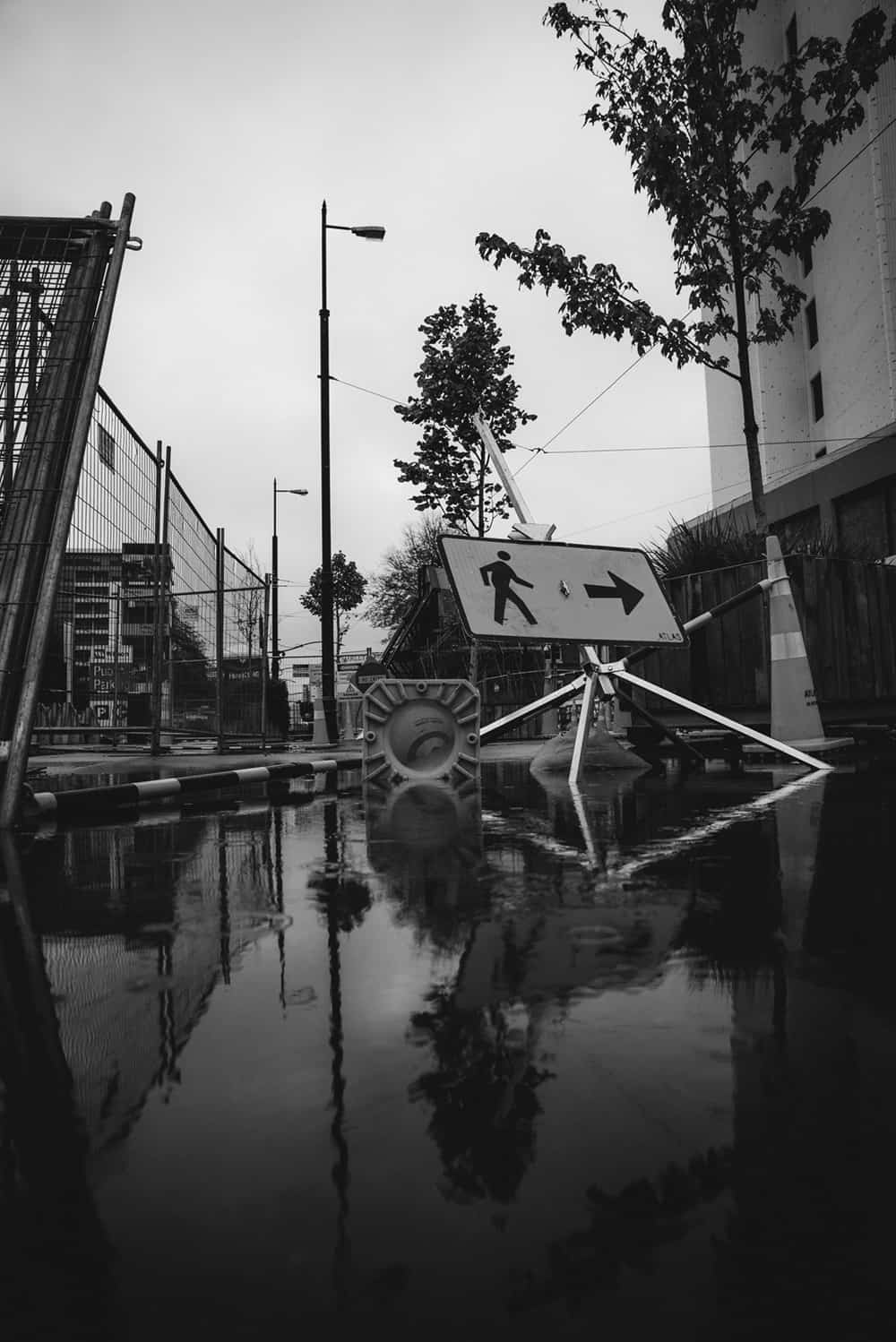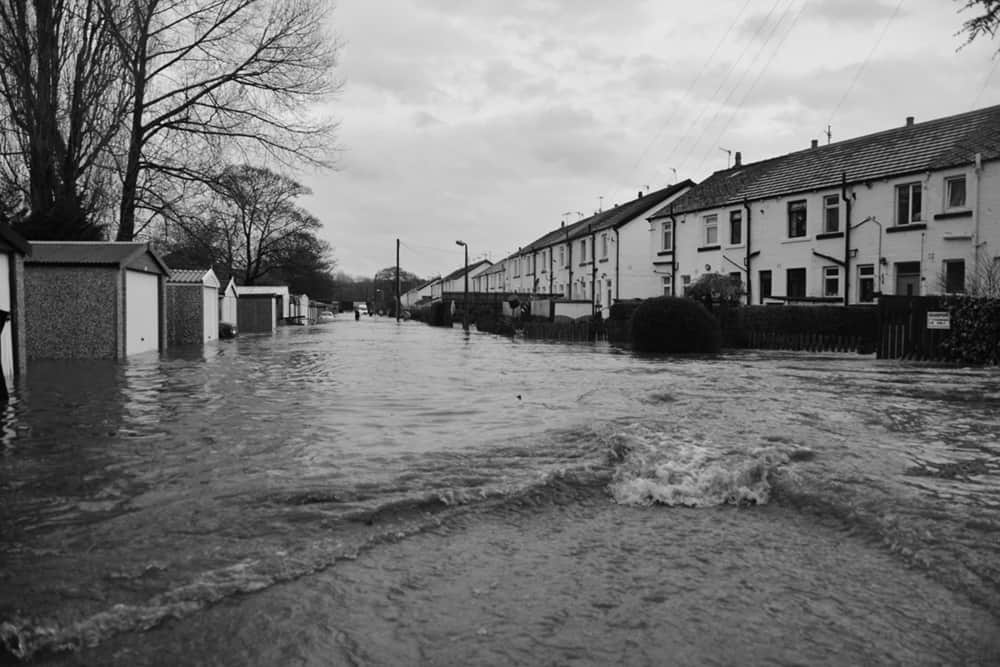
As a homeowner, it’s best to know what your insurance policy covers before you need it. We can help you understand what type of water damage is covered by your Tulsa homeowners insurance policy and situations that require you to pay for your own repairs.
Your Tulsa Insurance Guy agent is trained to explain your coverage in plain language and help you decide if you need additional flood insurance depending on where your home is located.


Tulsa Homeowners Insurance vs.Tulsa Flood Insurance
There are two types of insurance policies that cover losses due to water damage – homeowners insurance and flood insurance. These two policies provide separate and distinct types of complementary coverage.
Most Tulsa homeowners insurance policies cover damage to your home caused by a sudden and accidental water event. These events include things such as a burst pipe, wind-driven rain, or melting snow that seeps into your home after a winter storm.
Water damage that is caused by poor home maintenance such as overfilled gutters, lack of roof upkeep, condensation buildup due to inadequate ventilation, or ignored leaks is generally not covered.
Flood damage to your home and belongings is also not covered under your homeowner policy, However, you could receive coverage through a separate flood insurance policy. Information about the National Flood Insurance Program is available online and at the local office of the Federal Emergency Management Agency. Our Tulsa Insurance Guy agents can help you to determine if you would benefit from Tulsa flood insurance based on the location of your home.
Preventing Water Damage to Your Tulsa Home
Even if you have an excellent Tulsa home insurance policy, it is always best to actively prevent water damage. Water damage can be frustrating and inconvenient, no matter the severity of the issue.
Regular home maintenance is the best way to uncover potential water damage problems before they start. Drips can be sneaky, but with these helpful tips, you can easily outsmart them.


Learn About Gadgets & Devices That Help Prevent Water Damage
There are lots of gadgets and devices available that can help reduce the chance of water damage in your home. Water detection gadgets and devices can detect water leaks or failures of appliances such as washing machines, dishwashers, water heaters, and sump pumps.
Some gadgets lessen the probability of a water leak to begin with while other gadgets quickly alert you to a problem, lessening its severity. This is not an exhaustive list of the many available devices but just a few ideas to get you started.
Washing Machines, Dishwashers, and Reinforced Hoses
A washing machine does not have to be in operation to leak or have a hose burst. Most washer-related water damage happens when hoses break. It’s important to regularly inspect both the hot and cold water supply hoses for kinks, cracks, blisters, or bulging and to replace them when they show any signs of wear.
Before changing hoses first unplug the machine’s power cord or turn off the electrical breaker. Once this is done, make sure the water to the appliance is turned off. After you have successfully changed the hoses, check to make sure that all connections are tight and dry. Finally, restore power and water to the appliance.
Pressure Testing Gauge
One of the major causes of leaks and burst pipes in a home is stress or strain from water pressure that is set too high. When this is the case, hoses, pipes and water lines can crack, creating leaks or gushes that could cause thousands of dollars in damage. A pressure testing gauge will allow you to ensure that your home’s water pressure is set to a safe level.
Water Detecting Sensor
Most water detecting sensors are inexpensive, battery-powered devices that can be placed on pumps. Floor sensors can be placed near plumbing or appliances that may leak. Installation of this type of device is simple, often requiring no more than a few minutes of work.
Water Shut-Off Valves and Sensor Shut-Off Devices
Water shut-off valves are available as manual, automatic, or a combination of both. Installing a manual shut-off valve on the water supply to your washing machine is inexpensive. This valve, lever, or handle allows you to easily shut off the water to your washer when it’s not in use.
By doing so, you can release continuous pressure on washer hoses that could cause them to burst over time. Try to make it a habit to shut off the water to your washer any time you’re not using it. Additionally, you should always shut off the water when you leave home for more than a few days so that a burst hose does not go undetected for days or weeks.
Some of these systems are available only through professional installers, others at plumbing supply stores, online retailers, and a few at hardware or home improvement stores.
Watch Your Water Bill
A sudden or large fluctuation in your water bill for unknown reasons could be a tip-off to one or more water leaks. Even if you don’t see obvious evidence of water damage, a bigger water bill probably means water is leaking somewhere.
Learn How to Proceed After a Major Water Leak
Finding a major water leak in your home is quite stressful and can leave you feeling frazzled. To avoid this, it is important to establish a plan for proceeding should a water leak occur. Here are some simple steps that can help you salvage your belongings while limiting water damage and loss:
- Turn off the main water valve and then check the water meter outside your home. Is the water still moving through the site of the leak? If so, water is flowing somewhere and it’s time to investigate.
- Turn off your utilities. This is an important step in decreasing injury or greater damage to your home.
- Do not use any electrical appliances until the water leak is stopped and water is no longer present.
- Use fans to ventilate the area for 24-48 hours, or until the water has subsided.
- Remove as much of the water as possible or work to contain the water flowing from the leak.
- Move valuable items to a safe and dry location.
- Remove area rugs and light furniture from the floor surrounding the water leak (do not remove carpet that is installed in your home).
- Remove excess water from the surface of your furniture if possible.
- Watch out for debris or pests that were disturbed by the water leak.
- Contact your Tulsa home insurance provider and file a claim as soon as possible.
- Don’t throw anything out, even if it is completely ruined by the water leak.
- Save all receipts you incurred during the process for your insurance claim.
By investing in quality Tulsa homeowners insurance through Tulsa Insurance Guy, you can have confidence in knowing that your home and belongings are protected, no matter what happens.

